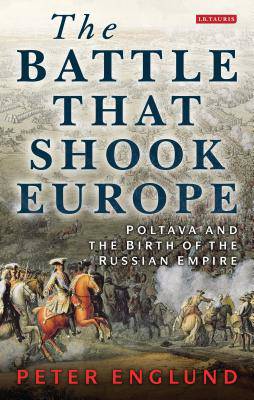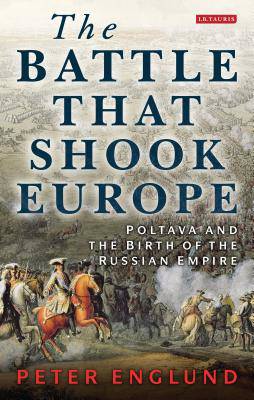
- Afhalen na 1 uur in een winkel met voorraad
- Gratis thuislevering in België vanaf € 30
- Ruim aanbod met 7 miljoen producten
- Afhalen na 1 uur in een winkel met voorraad
- Gratis thuislevering in België vanaf € 30
- Ruim aanbod met 7 miljoen producten
Zoeken
The Battle That Shook Europe
Poltava and the Birth of the Russian Empire
Peter Englund
Paperback | Engels
€ 60,95
+ 121 punten
Omschrijving
'This victory', exulted Peter the Great, 'has laid the final stone in the foundations of St Petersburg!' The Battle of Poltava, 1709, marks the birth of the Tsar's vast Russian Empire. In 1700, seeking to open Russian trade routes to the West, the Tsar combined with Denmark, Saxony and Poland to attack Swedish hegemony in the North. Against the odds, King Charles XII of Sweden subdued the hostile coalition for nearly a decade, but in 1708 took his fatal decision to march for Moscow. His defeat at Poltava, in the Ukraine, proved the turning-point of the Great Northern War, heralding the collapse of the Swedish Empire and the rise of Russia, the effects of which would be felt for almost three hundred years. Swedish historian Peter Englund's vivid account of the three violent days of battle is an internationally acclaimed classic of military history, admired by scholars and the lay reader alike.
Specificaties
Betrokkenen
- Auteur(s):
- Uitgeverij:
Inhoud
- Aantal bladzijden:
- 288
- Taal:
- Engels
Eigenschappen
- Productcode (EAN):
- 9781780764764
- Verschijningsdatum:
- 15/04/2013
- Uitvoering:
- Paperback
- Formaat:
- Trade paperback (VS)
- Afmetingen:
- 137 mm x 213 mm
- Gewicht:
- 317 g

Alleen bij Standaard Boekhandel
+ 121 punten op je klantenkaart van Standaard Boekhandel
Beoordelingen
We publiceren alleen reviews die voldoen aan de voorwaarden voor reviews. Bekijk onze voorwaarden voor reviews.








